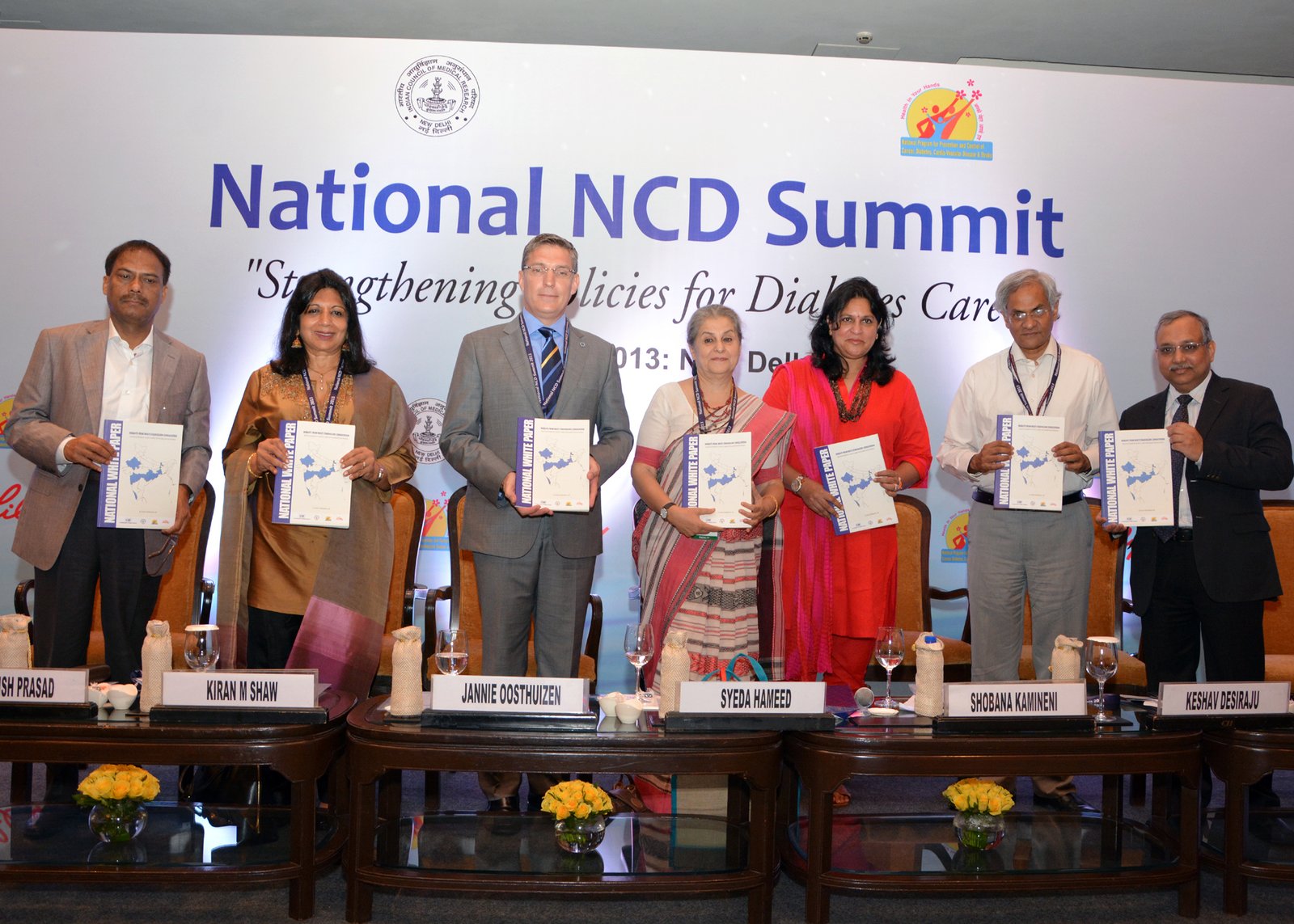Diabetes to affect 100 million Indians by 2030 : White paper
June 10, 2013 | Monday | Reports/white papers | By Rahul Koul Koul
Diabetes to affect 100 million Indians by 2030 : White paper
Dr Syeda Hameed, member, Planning Commission, releasing the CII national white paper "Insights from Multi Stakeholder Consultation - Management & Care of Diabetes in India" at the National NCD Summit, in New Delhi on June 07, 2013
The national white paper "Insights from Multi Stakeholder Consultation - Management & Care of Diabetes in India" was released by Dr Sayeda Hameed, member, Planning Commission at a two-day national non communicable diseases (NCD) summit was organised by the CII and pharmaceutical company, Eli Lilly held in New Delhi on June 07, 2013.
The white paper, which is the first of its kind on NCDs encapsulates some of the best practices and the suggestions from a diverse range of experts. It includes input received from the five state roundtable forums with multi- stakeholder groups organized at state capitals of Rajasthan, West Bengal, Kerala, Maharashtra and Chhattisgarh. Recommendations in the white paper are intended to strengthen the existing national policies and programme around diabetes management. One of the key recommendations of the white paper is to focus on building capacity of primary healthcare workforce and also introduce innovative educational tools for training like diabetes conversation maps.
Addressing the inaugural programme summit, focusing on the theme of "Strengthening Policies for Diabetes Care," Dr Hameed said that the increasing prevalence of the disease, governmental delivery systems at the states and centre alone will not be able to combat increasing threat of non communicable diseases (NCDs) in the country. "We need multi sectoral collaborative efforts to address the present and future challenges posed by NCDs in country wherein every sector needs to share personal responsibility. Plan for the health sector in the 12th five year plan cannot be an isolated one and it needs to be integrated with the plans of all sectors. Currently, more than 61 million people in India have diabetes, compared with 50.8 million last year, an increase of over 12 per cent. By 2030, more than 100 million people in India will likely develop the disease. In addition, the International Diabetes Federation estimates that 9.2 per cent of adults in India have diabetes, making its prevalence second only to China. In 2012, diabetes caused 983,000 deaths in India, the largest contributor of mortality.
The summit was supported by the National Programme for Cancer, Diabetes, Cardiovascular Disease and Stroke (NPCDCS), Ministry of Health and Family Welfare and the Indian Council for Medical Research (ICMR). Dr Sayeda Hameed, Member, Planning Commission was the Chief Guest on the occasion.
Addressing the programme as Guest of Honour, Mr Keshav Desiraju, secretary, Health and Family Welfare expressed the need to have an intermediate level of public healthcare workers beyond the ASHA workers. He added that there should be specific models of public private partnerships evolved with clear identification of roles and responsibilities.
Addressing the programme, Dr Jagdish Prasad, DGHS, Ministry of Health and Family Welfare emphasized the need for corporate to come forward and contribute to the cause of NCDs.
Mr Jannie Oosthuizen, Lilly's Vice president for Asia operations, Ms Kiran Majumdar Shaw, chairperson CII, National Committee on Biotechnology and Ms Shobana Kamineni, chairperson, CII National Committee of Public Health addressed the inaugural programme.
Senior officials of ministry of health and family welfare, leading diabetes experts, scientists, business leaders, representatives from international and national development agencies, and academicians and researchers engaged in the field of diabetes management attended the inaugural programme. Senior state-level government officers from many states implementing the NPCDCS programme also attended the programme.









